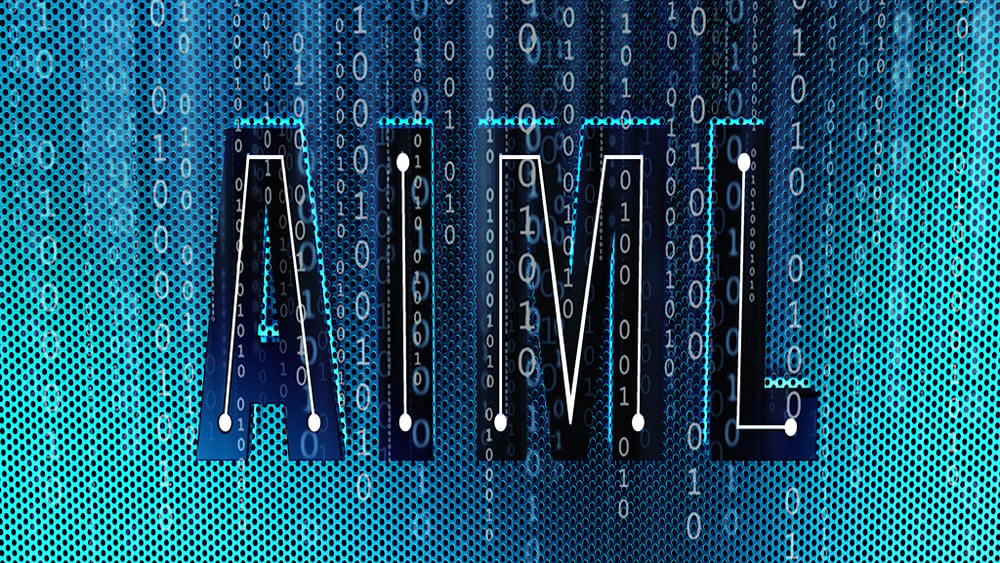The Beginner's Guide to Machine Learning Concepts
Machine Learning AI Technology Apr 11, 2024 9:00:00 AM Ken Pomella 2 min read

Machine Learning (ML) has rapidly transitioned from a niche field to a fundamental technology driving innovation across countless industries. This guide introduces the core concepts of machine learning, explores its significance, and highlights real-life applications that illustrate its transformative potential.
What is Machine Learning?
At its simplest, machine learning is a subset of artificial intelligence (AI) that enables computers to learn from and make decisions based on data, without being explicitly programmed for each task. By analyzing patterns in data, ML systems can make predictions or decisions, improving their accuracy over time as they process more data.
Core Concepts of Machine Learning
- Supervised Learning: This involves training an ML model on a labeled dataset, meaning each training example is paired with the correct output. The model learns to predict the output from the input data, and its performance can be directly measured. Applications include spam detection in emails and facial recognition.
- Unsupervised Learning: In unsupervised learning, the model is trained on data without explicit instructions on what to do with it. The system tries to learn the patterns and the structure from the data. Clustering and association are common unsupervised learning tasks, useful in market basket analysis and customer segmentation.
- Reinforcement Learning: This type of learning uses a system of rewards and penalties to compel the computer to solve a problem by itself. Its applications include robotics for industrial automation, navigation, and playing strategy games like chess or Go.
Importance of Machine Learning
The importance of machine learning lies in its ability to process and analyze vast amounts of data at a speed and accuracy that humans cannot match. It powers a wide range of applications, from mundane tasks like filtering spam emails to complex ones like predicting consumer behavior, automating driving, and advancing medical diagnoses.
Real-life Applications of Machine Learning
- Healthcare: Machine learning algorithms can predict disease outbreaks, assist in early diagnosis of illnesses, and recommend personalized treatment plans.
- Finance: ML is used for credit scoring, algorithmic trading, fraud detection, and personalized banking services, enhancing both security and customer experience.
- E-commerce and Retail: From personalized shopping recommendations to optimizing inventory management, machine learning enhances the customer experience and operational efficiency.
- Transportation: Self-driving cars are perhaps the most well-known application of ML, combining various techniques to process sensor data in real time to navigate safely.
- Smart Assistants: Virtual assistants like Siri, Alexa, and Google Assistant use machine learning to understand natural language and improve their responses over time.
Getting Started with Machine Learning
For those interested in diving into machine learning, start by familiarizing yourself with basic statistics and programming, particularly in Python, which is widely used in ML. Online courses, tutorials, and hands-on projects can provide practical experience. Understanding the ethical implications of machine learning—such as bias in AI and privacy concerns—is also crucial for responsible development and application.
Conclusion
Machine learning is reshaping the world, offering innovative solutions across sectors and enhancing both personal and professional life. By understanding the basics and exploring its applications, we can better appreciate the potential of ML and its role in driving future technological advancements. Whether you're a budding enthusiast or a seasoned professional, the journey into machine learning promises a fascinating blend of challenges and opportunities.

Ken Pomella
Ken Pomella is a seasoned technologist and distinguished thought leader in artificial intelligence (AI). With a rich background in software development, Ken has made significant contributions to various sectors by designing and implementing innovative solutions that address complex challenges. His journey from a hands-on developer to an entrepreneur and AI enthusiast encapsulates a deep-seated passion for technology and its potential to drive change in business.
Ready to start your data and AI mastery journey?
Explore our courses and take the first step towards becoming a data expert.
